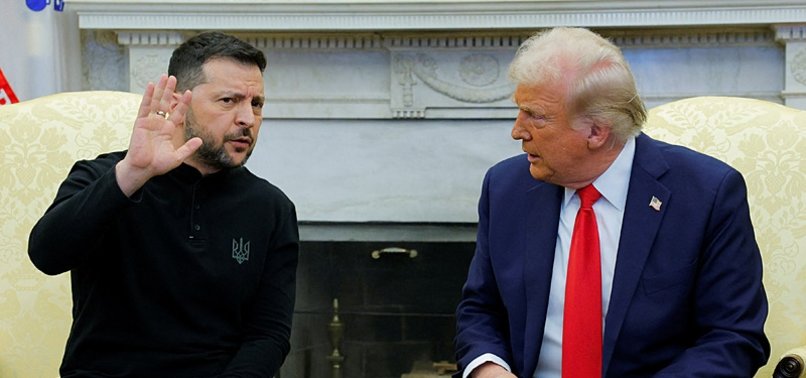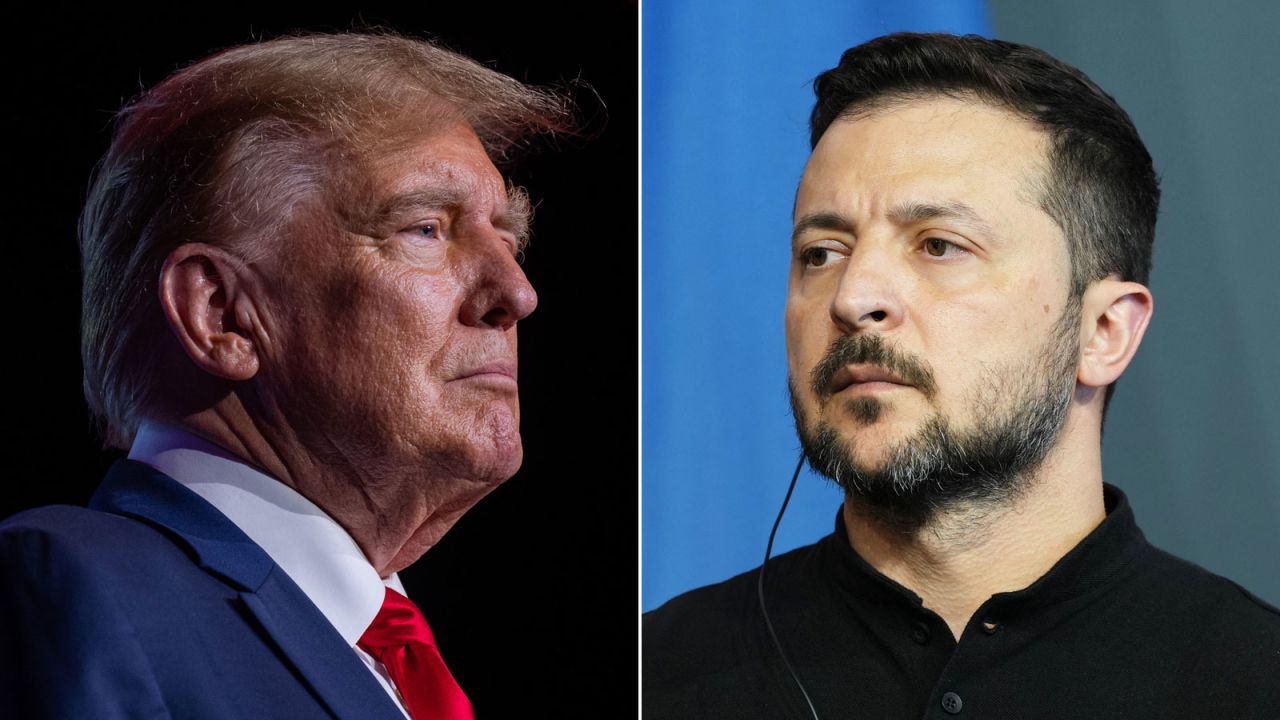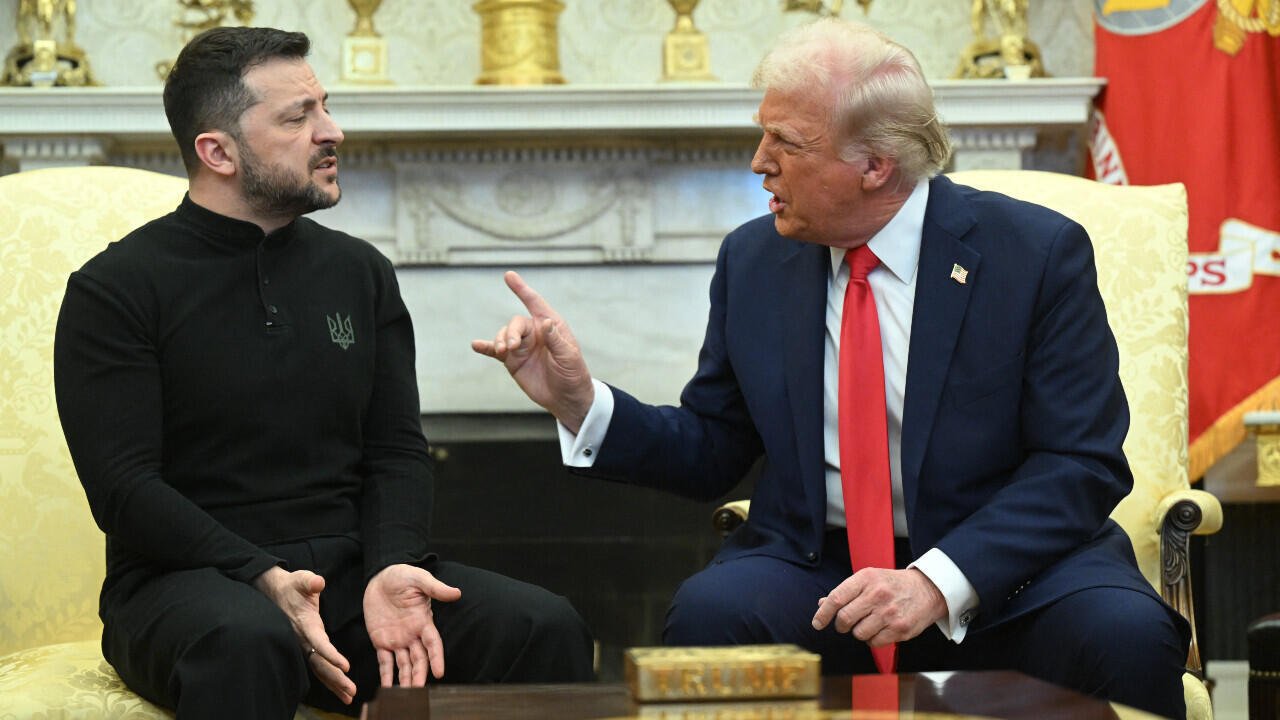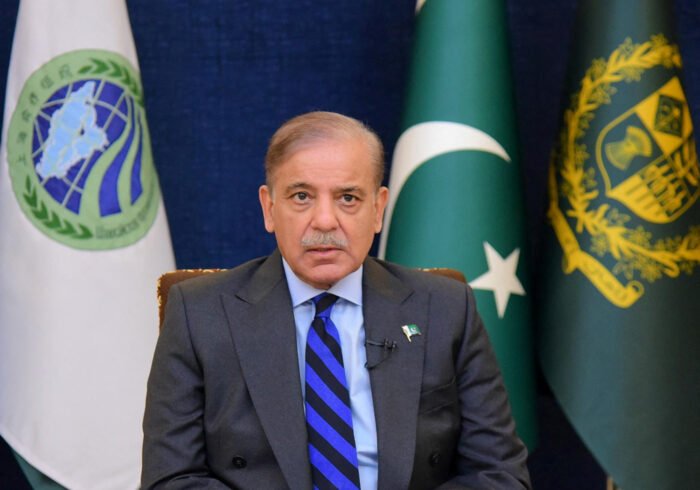The recent explosive encounter between former U.S. President Donald Trump and Ukrainian President Volodymyr Zelensky in the Oval Office has reignited concerns about Trump’s approach to international diplomacy. The confrontation, filled with sharp exchanges, accusations, and threats, underscores Trump’s attempt to strong-arm Zelensky into making a deal that favors American interests. This latest spat has raised eyebrows across the globe, signaling a major rift in the U.S.-Ukraine relationship amid the ongoing war with Russia.
Background: The Ukraine-Russia War

The war between Ukraine and Russia erupted in 2014 when Russia annexed Crimea, followed by a full-scale invasion in 2022. Since then, Ukraine has been defending itself against Russian aggression, relying heavily on Western military and economic support, particularly from the United States. Under President Joe Biden’s administration, Ukraine received billions of dollars in aid to counter Russia’s offensive. However, Trump’s return to power has cast uncertainty over future U.S. support.
Trump has long been critical of Ukraine, often accusing Zelensky of failing to reciprocate U.S. assistance. His administration’s stance has oscillated between open support and veiled threats of reducing aid unless Ukraine concedes to certain American demands. This pattern of behavior came to a head in their recent Oval Office meeting, where Trump openly berated Zelensky.
The Tense Confrontation

In a heated exchange, Trump accused Zelensky of “gambling with World War III,” implying that Ukraine’s refusal to negotiate with Russia could lead to a global conflict. Trump’s remark was not just an expression of frustration but a clear attempt to pressure Zelensky into making concessions. Trump emphasized that without U.S. military aid, Ukraine would have lost the war in mere weeks, a statement eerily similar to Russian President Vladimir Putin’s claim that Ukraine would have fallen within days.
Zelensky, unfazed by Trump’s intimidation, responded assertively. He pointed out that Ukraine had fought valiantly and had always expressed gratitude for international support. However, he refused to accept Trump’s ultimatum, stating that diplomacy should be based on fair terms rather than coercion. When Trump insisted that a ceasefire was the best path forward, Zelensky shot back, questioning why Trump was echoing Putin’s rhetoric.
Trump’s Power Play
Beyond the verbal altercation, Trump’s tactics reveal a broader strategy of using intimidation to push his agenda. His remark that Ukraine lacked “the cards” without U.S. support was a direct warning: comply with American demands, or risk losing aid. Trump’s erratic approach to foreign policy, where alliances are treated as business transactions, has long been a source of controversy. In this case, his pressure campaign on Zelensky appeared aimed at forcing Ukraine into negotiations with Russia on unfavorable terms.
Further, Trump’s Vice President, JD Vance, escalated the situation by accusing Zelensky of being disrespectful. This added another layer of tension, making it clear that the Trump administration views diplomacy as a one-sided affair where Ukraine is expected to submit rather than negotiate as an equal partner.
Global Repercussions

The confrontation has sent shockwaves through the international community. European allies fear that Trump’s unpredictability could weaken Western unity against Russia. If Trump follows through on his implicit threat to withdraw support, Ukraine may find itself in a precarious position, with diminished resources to continue its defense.
Moreover, Trump’s treatment of Zelensky has drawn comparisons to his earlier foreign policy maneuvers, where he has often appeared more sympathetic to authoritarian figures than democratic allies. His dismissive attitude toward Ukraine’s struggle for sovereignty has only fueled speculation about his stance on Russia’s aggression.
Conclusion
The Oval Office showdown between Trump and Zelensky epitomizes the former president’s strong-arm tactics in diplomacy. His attempt to intimidate Ukraine into compliance reflects a transactional approach to foreign relations, where aid and support come with strings attached. As the war rages on, Ukraine remains resilient, but the uncertainty surrounding U.S. backing under Trump’s leadership poses a significant challenge. Whether this confrontation marks a turning point in U.S.-Ukraine relations remains to be seen, but one thing is clear: Zelensky will not bow to intimidation, no matter the pressure exerted by Trump.
The author Ramsha Waheed holds a Master’s degree in English Literature with expertise in research and content writing.
You can reach her at ramshawaheed01@gmail.com.





